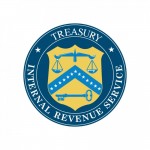 On Friday, February 2, 2012, the Obama administration released new Department of Health and Human Services[1] (HHS) contraception mandate rules. The government contends the new rules address the religious objections resulting in lawsuits from its existing rules. On close inspection the changes are an Orwellian shell game.
On Friday, February 2, 2012, the Obama administration released new Department of Health and Human Services[1] (HHS) contraception mandate rules. The government contends the new rules address the religious objections resulting in lawsuits from its existing rules. On close inspection the changes are an Orwellian shell game.
There are currently 44 lawsuits across the country opposing the mandate on First Amendment freedom of religion grounds. Judges in a number of those cases have issued orders for the Obama administration to revise the mandate. In response, the government proposed rules expanding exemptions from the mandate. The proposed rules also address the manner in which the exemption would operate.
Expansion of the Definition of Religious Employer
The rules expand the definition of a religious employer that may “opt out” of the mandate. The new opt-out rules specifically exclude religiously managed private businesses like Hobby Lobby.[2] Opposition to the mandate has grown because it forces employers to provide insurance coverage to its employees for birth control and drugs that may cause abortions regardless of moral beliefs.
The new proposed rules[3] change the definition of “religious employer” from the prior rule. The previous definition essentially covered only actual churches. The new rule is expanded to exempt non-profit organizations with religious affiliations.[4] The proposed definition:
Eligible organizations. An eligible organization is an organization that satisfies all of the following requirements:
- The organization opposes providing coverage for some or all of any contraceptive services required to be covered … on account of religious objections.
- The organization is organized and operates as a nonprofit entity.
- The organization holds itself out as a religious organization.
- The organization maintains in its records a self-certification, … specifying those contraceptive services for which the organization will not establish, maintain, administer, or fund coverage, and makes such certification available for examination upon request.
What Does It Mean to Be Exempt?
 An organization that meets the above definition will not be required to include the objectionable coverage in the insurance plans for its employees.[5] However, the insurance company[6] of the organization WILL HAVE to make available the objectionable coverage, at no cost, under a separate policy, to eligible female employees.
An organization that meets the above definition will not be required to include the objectionable coverage in the insurance plans for its employees.[5] However, the insurance company[6] of the organization WILL HAVE to make available the objectionable coverage, at no cost, under a separate policy, to eligible female employees.
The 80 page Notice of Proposed Rulemaking and the HHS Fact Sheet contend that this scheme will not cost the insurance company[7] anything, and the religious organization “would not have to contract, arrange, pay or refer for any contraceptive coverage to which they object on religious grounds.”
The Government Theory Makes No Sense and Changes Nothing
 There is a simple law of economics the government ignores: “There is no free lunch.” The cost of providing the objectionable coverage will be borne by someone. The theory of insurance is to spread the cost of an insured risk across a pool of individuals. If the government is now requiring the insurance company to pay for the coverage, the company will simply build that expense into premiums it charges its customers.
There is a simple law of economics the government ignores: “There is no free lunch.” The cost of providing the objectionable coverage will be borne by someone. The theory of insurance is to spread the cost of an insured risk across a pool of individuals. If the government is now requiring the insurance company to pay for the coverage, the company will simply build that expense into premiums it charges its customers.
Under the government plan, a company offering a health insurance plan to an exempt employer will simply raise the premiums it charges the employer for everything else. The employer will still be paying, but the paperwork will be different. The government is now mandating a shell game. The religious employer will be paying for[8] the objectionable services.
The reality of the scheme is that it changes nothing.
[1] Joining HHS in the rule making are the Treasury Dept. (IRS) and the Labor Dept. (Employee Benefits Security Administration
[2] There are currently 14 lawsuits around the country by private for-profit employers with religious objections to the mandate.
[3] The action on 2/2/13 is known as a Notice of Proposed Rulemaking. Is a step required by law before a rule can go into effect. The Administrative Procedures Act requires a rule to be published in the Federal Register, to be followed by 90 days of public comment before a rule can go into effect. Rules then have the full force and effect of law, but have not been voted on by Congress or signed into law by the president.
[4] This would include non-profit hospitals, schools and charitable organization religiously affiliated.
[5] In the case of schools that offer health insurance to their students, the exemption would apply to student plans as well.
[6] Many of the organizations pay for employee health care themselves or “self-insure”. These organizations generally contract with a “third-party administrator” to manage the coverage. The government proposes that these administrators pay for policies for eligible employees to provide the objectionable services.
[7] Or third-party administrator.
[8] And contracting or referring for the services as the rules require the employer to notify its insurer or administrator of its objections to the coverage so that party can arrange for the “no cost” coverage.






[…] February 1, 2013, the Department of Health and Human Services issued a new Notice of Proposed Rule Making that expands the definition of “religious employer”. Comments Filed Under: Legal News […]